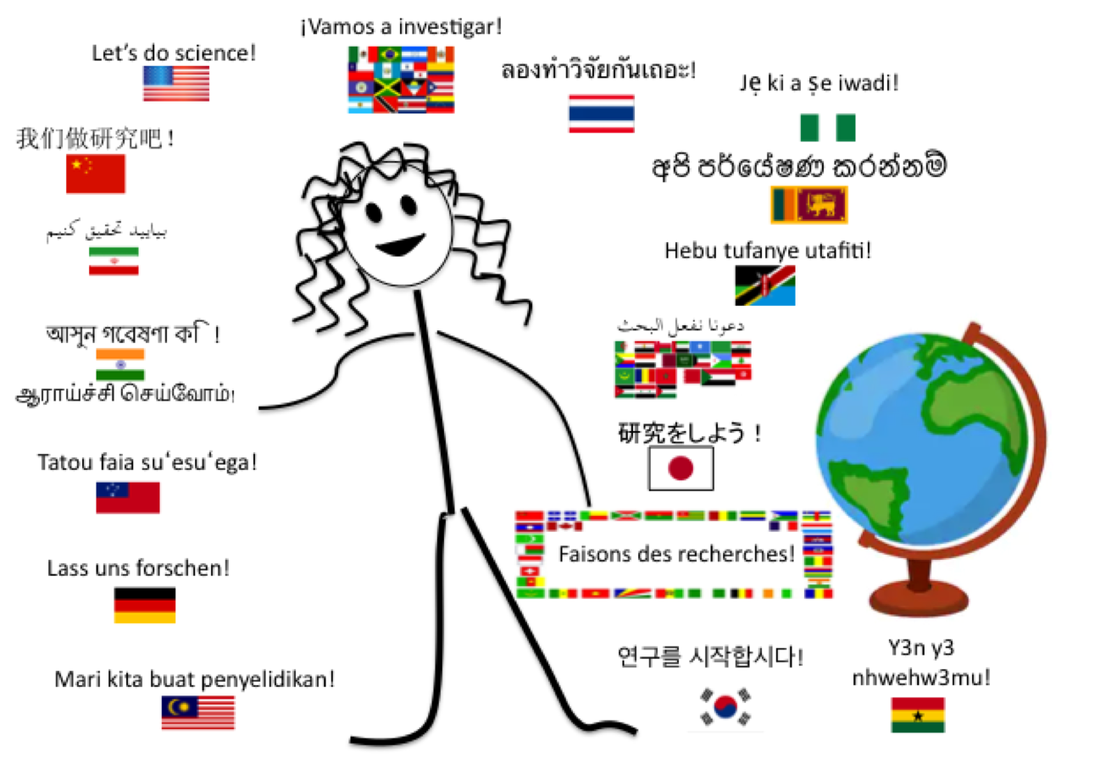Advancing Diversity.New ideas emerge from organizations that include people with diverse talents, backgrounds, and ways of thinking. I believe fostering diversity within any level of organization, from a university to a small research group, will serve to enhance human ingenuity and innovation. My plasticity allows me to learn, adapt, and grow to foster community and advance people. My professional activities and goals underscore my desire to increase diversity and inclusion in the sciences.
|
Adapting to better serve K-12 students
I served as a science teacher to over 200 students at an inner city Title I high school, where greater than 60% of the students’ first language was not English. To enhance my communication with the students and their parents, I continued learning Spanish after studying abroad at the Universidad Nacional in Costa Rica. I have achieved an intermediate reading, writing, and speaking proficiency. I ensured that my students met the challenging state academic standards, and I enriched the educational environment by allowing students to deconstruct and construct robotic sharks, which was supported by my Houston Independent School District GEAR UP Innovation grant. These efforts led to increased participation in local science fair, and one student advanced to the district-level competition (7th largest school district in the USA).
Mentoring scientists of tomorrow
Working with diverse students, colleagues, and other stakeholders enriches and accelerates the success of my research program. I have served as a mentor to 3 PhD students, 2 master’s students, 50 undergraduates and 7 high school students in full-time summer research programs or multi-week academic year internships. The students were from diverse backgrounds, 19 women, 15 people of color, 3 first generation college students, 2 LGBTQIA students and 1 veteran. Under my guidance 8 students have co-authored or submitted peer-reviewed articles, 14 students presented at local and national conferences, and five students have pursued graduate training. In 2013, my NSF-REU intern and I were featured in a short film about the impact of the NSF Animal Behavior-REU, which has been viewed over 3,800 times (as of 11 Oct. 2018).
Working with diverse stakeholders
My research program lends itself to interacting with diverse cultures. I have engaged in field research, courses, outreach and diplomacy in over 20 countries across 4 continents (1). My research includes international field expeditions, which involves establishing partnerships with diverse stakeholders such as scientists, fishermen, landowners, and villagers. My research and extension work is tightly intertwined.
Institutional diversity
My diversity initiatives are visible on an international level through my roles and responsibilities in academic societies. I was nominated and selected to be a member of the Animal Behavior Society (ABS) Diversity Enhancement Committee, which was an initial step for implementing my NSF postdoctoral outreach initiatives. As a member of the ABS Diversity Enhancement Committee, I coordinated the Charles H. Turner Program, which recruits, supports and prepares undergraduates from underrepresented groups to fully engage in the ABS conference. My leadership role in an academic society is a testament to my commitment to promote diversity on national and international platforms. I am also the co-organizer of Weaving the Future of Animal Behavior for Graduate Students, a professional development workshop with peer mentoring circles that have served nearly 90 graduate students (Shelton et al., 2021).
Community-based initiatives
I regularly contribute to community-based diversity initiatives. As a graduate student, I volunteered with Bethel Homework Help, an African American community-based after school program, contributing to the efforts that were honored by the 2014 Be More Engaged Award from the City of Bloomington for encouraging literacy. As a postdoc, I have continued community outreach engagement through TEAM Tox and the Oregon Department for Fish and Wildlife. In Team Tox, I served on a panel to inform undergraduates from underrepresented groups about graduate school. For the Oregon Department Fish and Wildlife Free Family Fishing Day, I was tasked with encouraging inclusivity by partnering with multi-lingual people to translate the phrase “Free Family Fishing Day” into nearly 30 languages for the brochure and banner. On the day of the event, I served as a Spanish translator. My civic engagement reduces the barrier between academia and other communities to increase awareness of and interest in science.
My ability to affect change
As a woman of color aspiring to an academic career in animal behavior, I uniquely understand the barriers that exist for young underrepresented students to get involved in the sciences. I am in this position in large part because of my involvement in STEM outreach programs (e.g., NSF- REU, AGEP, NSF-IGERT, UNCF-Merck), and having mentors and peers that share a similar background. Such diversity programs and communities lead to higher expectations, enhanced career-aspirations, and an increased sense of belonging, which collectively promote academic excellence. As a multilingual, military brat, woman of color from a rural community, I recognize the gravity of my position to affect change. I embrace my academic role, which involves reinforcing the talents and potential of students through encouraging them to pursue such targeted fellowships and opportunities. I plan to pursue funding for similar impactful outreach programs as a faculty member and partner with related organizations (e.g., Department of Fish and Wildlife) to achieve my outreach goals. As a tenure-track professor, I will continue my commitment to traditionally marginalized people by helping to recruit, retain and promote high-achieving underrepresented minorities and those individuals who share a desire to expand opportunity, too.
